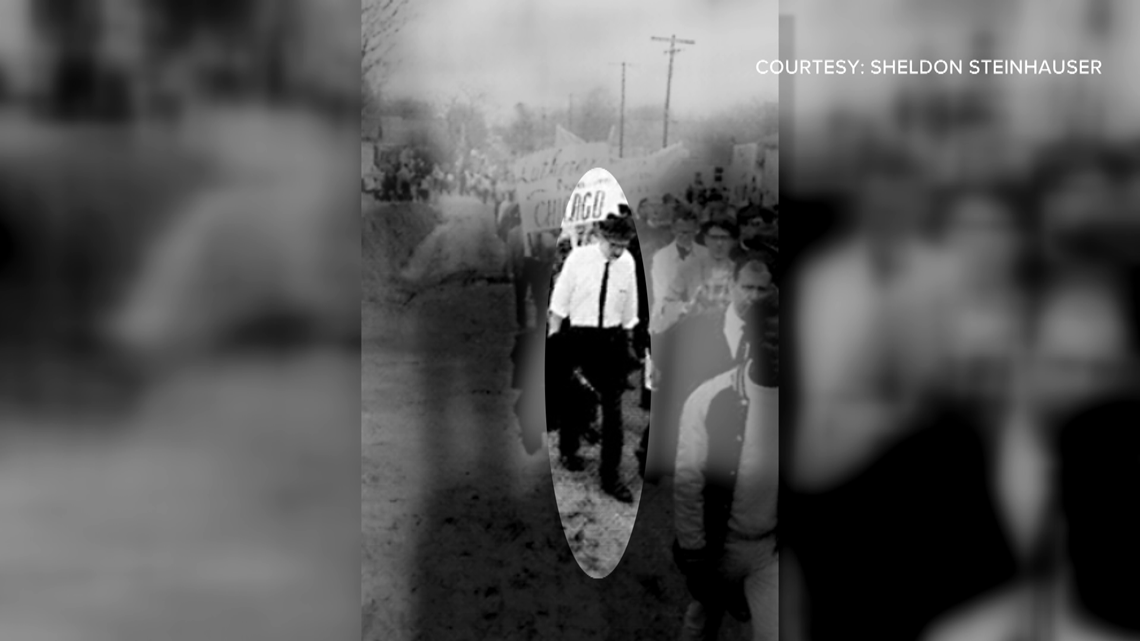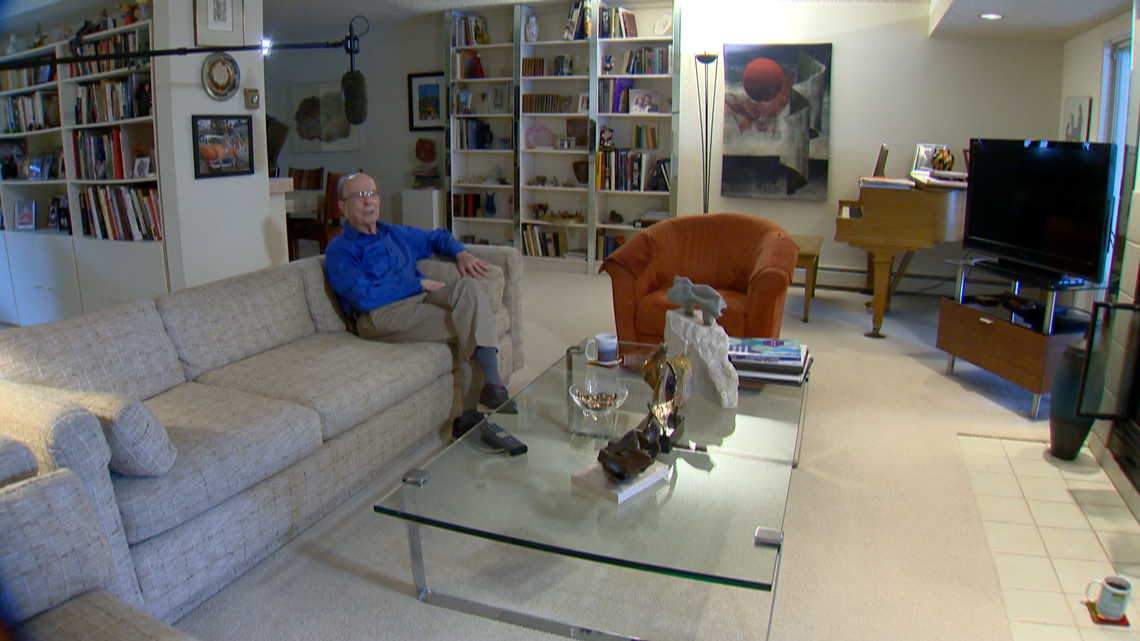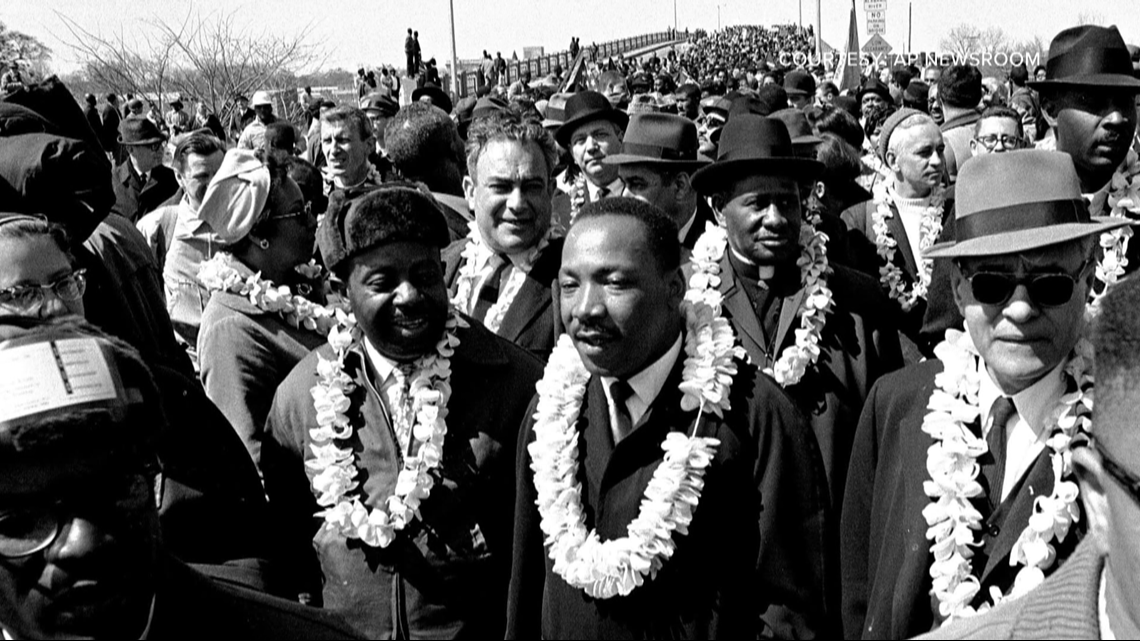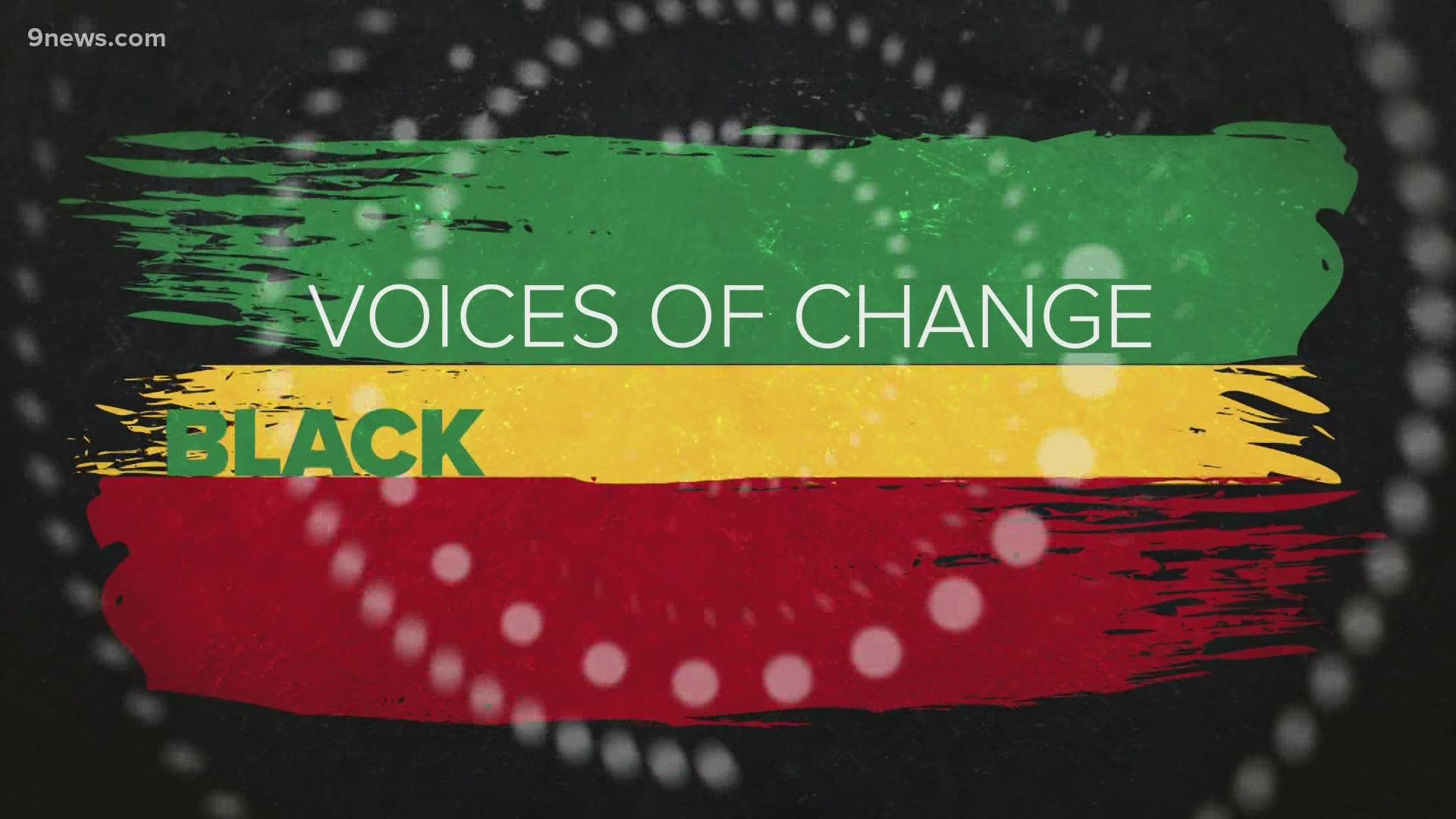DENVER — Sheldon “Shelly” Steinhauser spent most of his life as an advocate for social justice.
He was born in the Bronx, New York, and in the 1950s became the executive director of the mountain region’s Anti-Defamation League here in Denver.
That same group flew down to Alabama in 1965 to join a national march from Selma to Montgomery with Dr. Martin Luther King.
“When we got the call basically from Dr. King and his affiliated organizations that they were doing the national march from Selma to Montgomery in 1965, we chartered a plane … almost 100 of us,” Steinhauser said.


The historic 54-mile march of about 50,000 supporters was one of three civil rights protests that occurred in Alabama in 1965 from Selma to the state capital of Montgomery.
“We flew into the Montgomery airport and the wife of one of the African-American pastors … had a fabulous soprano voice and as we were beginning to start our descent into Montgomery, she started singing 'We Shall Overcome.'"


Shelly is now 90 years old and a retired MSU Denver associate professor of sociology. Last year, he received the Martin Luther King, Jr. Humanitarian Award. He said during the march into Montgomery, he had a rabbi from Denver on one arm and a nun on the other — an experience, he said, that was a defining moment of his life.


“As we got towards the Capitol area, there were lots of Whites that were out on the balconies of office buildings with the most hate-filled stares that I have ever seen,” he said. “(I was) frightened, inspired, amazed that I was part of something that I later realized was so much a part of my history but part of the history of the country.”
That idea was the inspiration for another historic movement the U.S. saw over the summer with Black Lives Matter (BLM). It was a demonstration Steinhauser said he supported but was concerned the protests were full of distractions.
“I’m not supportive there were people who joined up with the movement who had other agendas (and) who let themselves go and engaged in violent acts or vandalism.”


“The marches are important because they give people an opportunity to express themselves to be involved in the political process,” said Ethnic Studies Professor Dr. Reiland Rabaka. “If you give people an opportunity to learn and have cultural exchange, we actually can achieve our multi-racial and multi-cultural democracy.”
Rabaka is a professor of African-American studies at the University of Colorado in Boulder and said these demonstrations date back to the end of slavery.
“The civil rights movement was a culmination of a century of protests that had been taking place since the Emancipation Proclamation Jan.1, 1863,” Rabaka said. “These marches have taught us that American democracy ought to include everybody.”
Steinhauser said the biggest difference he's seen in the BLM movement today is that it includes many different voices, which individually do not necessarily represent an entire community.
“I don’t think that’s the heart of the movement,” he said. Those (groups) became distractions.”
Steinhauser hopes his support helped keep the history of civil rights alive as part of a movement marching for social justice we still see today.
“That was a highlight of my life, he said. “It made me feel so honored and privilege to have the opportunity to be there.”
SUGGESTED VIDEOS: Black History Month

